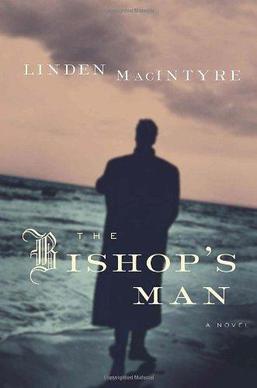
Who Framed Roger Rabbit is a 1988 American fantasy comedy mystery film directed by Robert Zemeckis and written by Jeffrey Price and Peter S. Seaman. It is loosely based on the 1981 novel Who Censored Roger Rabbit? by Gary K. Wolf. The film stars Bob Hoskins, Christopher Lloyd, Stubby Kaye, and Joanna Cassidy, with the voices of Charles Fleischer and Kathleen Turner. Combining live-action and animation, the film is set in an alternate history Hollywood in 1947, where humans and cartoon characters co-exist. Its plot follows Eddie Valiant, a private investigator with a prejudice against toons, who must help exonerate Roger Rabbit, a toon framed for murder.

The Giver is a 1993 American young adult dystopian novel written by Lois Lowry, set in a society which at first appears to be utopian but is revealed to be dystopian as the story progresses. In the novel, the society has taken away pain and strife by converting to "Sameness", a plan that has also eradicated emotional depth from their lives. In an effort to preserve order, the society also lacks any color, climate, terrain, and a true sense of equality. The protagonist of the story, a 12-year-old boy named Jonas, is selected to inherit the position of Receiver of Memory, the person who stores all the past memories of the time before Sameness. Jonas struggles with concepts of the new emotions and things introduced to him, and whether they are inherently good, evil, or in between, and whether it is possible to have one without the other.

Robert Lee Zemeckis is an American filmmaker. He first came to public attention as the director of the action-adventure romantic comedy Romancing the Stone (1984), the science-fiction comedy Back to the Future film trilogy (1985–1990), and the live-action/animated comedy Who Framed Roger Rabbit (1988). He subsequently directed the satirical black comedy Death Becomes Her (1992) and then diversified into more dramatic fare, including Forrest Gump (1994), for which he won the Academy Award for Best Director. The film won Best Picture. He has directed films across a wide variety of genres, for both adults and families.

Lynn Coady is a Canadian novelist and journalist.
John Marsden is an Australian writer and alternative school principal. Marsden's books have been translated into eleven languages.

Romancing the Stone is a 1984 action-adventure romantic comedy film directed by Robert Zemeckis, written by Diane Thomas and produced by Michael Douglas, who also starred in the film alongside co-stars Kathleen Turner and Danny DeVito. The film follows a romance novelist who must venture beyond her New York City comfort zone to Colombia in order to save her sister from criminals who are holding her for ransom as they search for a priceless treasure.

Katrina Elizabeth DiCamillo is an American children's fiction author. She has published over 25 novels, including Because of Winn-Dixie, The Tiger Rising, The Tale of Despereaux, The Miraculous Journey of Edward Tulane, The Magician's Elephant, the Mercy Watson series, and Flora & Ulysses. Her books have sold around 37 million copies. Four have been developed into films and two have been adapted into musical settings. Her works have won various awards; The Tale of Despereaux and Flora & Ulysses won the Newbery Medal, making DiCamillo one of six authors to have won two Newbery Medals.
"The Steadfast Tin Soldier" is a literary fairy tale by Hans Christian Andersen about a tin soldier's love for a paper ballerina. The tale was first published in Copenhagen by C.A. Reitzel on 2 October 1838 in the first booklet of Fairy Tales Told for Children. New Collection. The booklet consists of Andersen's "The Daisy" and "The Wild Swans". The tale was Andersen's first not based upon a folk tale or a literary model. "The Steadfast Tin Soldier" has been adapted to various media including ballet and animated film.

David Almond is a British author who has written many novels for children and young adults from 1998, each one receiving critical acclaim.

Candlewick Press, established in 1992 and located in Somerville, Massachusetts, is part of the Walker Books group. The logo depicting a bear carrying a candle is based on Walker Books's original logo.

Julius Bernard Lester was an American writer of books for children and adults and an academic who taught for 32 years (1971–2003) at the University of Massachusetts Amherst. Lester was also a civil rights activist, a photographer, and a musician who recorded two albums of folk music and original songs.

Shaun Tan is an Australian artist, writer and film maker. He won an Academy Award for The Lost Thing, a 2011 animated film adaptation of a 2000 picture book he wrote and illustrated. Other books he has written and illustrated include The Red Tree and The Arrival.

Zoe Whittall is a Canadian poet, novelist and TV writer. She has published five novels and three poetry collections to date.

Brian Francis is a Canadian writer. His 2004 novel Fruit was selected for inclusion in the 2009 edition of Canada Reads, where it was championed by novelist and CBC Radio One personality Jen Sookfong Lee. It finished the competition as the runner-up, making the last vote against the eventual winner, Lawrence Hill's The Book of Negroes.

Jessica Rabbit is a fictional character in the novel Who Censored Roger Rabbit? and its film adaptation, Who Framed Roger Rabbit. She is depicted as Roger's human toon wife in various Roger Rabbit media. Jessica is renowned as one of the best-known sex symbols in animation. She is also well-known for the line: "I'm not bad, I'm just drawn that way."

The Bishop's Man is a novel by Canadian writer Linden MacIntyre, published in August 2009. The story follows a Roman Catholic priest and former fixer for the Diocese of Antigonish named Fr. Duncan MacAskill. After years of quietly resolving potential scandals involving the misdeeds of Diocesan priests, Fr. MacAskill has been assigned by his Bishop to a remote parish on Cape Breton Island, Nova Scotia and ordered to maintain a low profile. MacIntyre, a native of Cape Breton, released the novel amidst the ongoing sexual abuse scandal in Antigonish diocese in Nova Scotia. The book was awarded the 2009 Scotiabank Giller Prize and the Canadian Booksellers Association's Fiction Book of the Year. Critics gave positive reviews, especially noting MacIntyre's complex and successful character development.

Yann Martel, is a Canadian author who wrote the Man Booker Prize–winning novel Life of Pi, an international bestseller published in more than 50 territories. It has sold more than 12 million copies worldwide and spent more than a year on the bestseller lists of the New York Times and The Globe and Mail, among many other best-selling lists. Life of Pi was adapted for a movie directed by Ang Lee, garnering four Oscars including Best Director and winning the Golden Globe Award for Best Original Score.

Poppy is a children's novel written by Avi and illustrated by Brian Floca. The novel was first published by Orchard Books in 1995. Poppy is the first-published of Avi's Tales From Dimwood Forest series. Within the narrative sequence of the series, it is the third book. The complete series is composed of Ragweed, Ragweed and Poppy, Poppy, Poppy and Rye, Ereth's Birthday, Poppy's Return, and Poppy and Ereth. In 1996, Poppy received the Boston Globe–Horn Book Award for fiction.

Jessica Dee Humphreys is a Canadian author, indexer, and journalist specializing in international humanitarian, military, and children's issues.
Bagram Ibatoulline is a Russian-born artist who has illustrated numerous books for younger readers written by Philip Booth, Kate DiCamillo, Michelle Houts, Stephen Mitchell, Linda Sue Park, Lois Lowry and others. His illustrations have been noted in reviews in The New York Times, Kirkus Reviews, and other national publications. Maria Russo wrote in 2019 that "Ibatoulline’s realistic watercolors astound and enchant, as always."

















